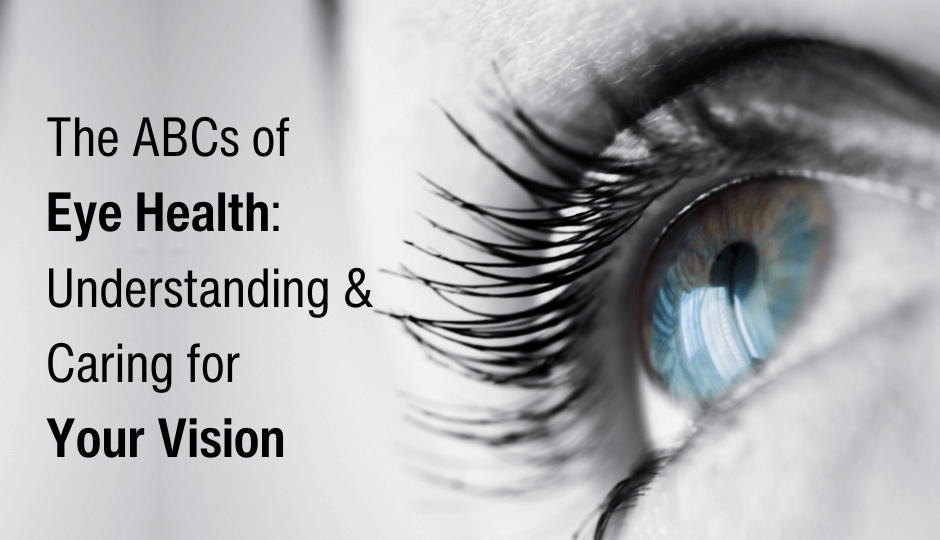Understanding and Caring for Your Vision
In the realm of healthcare, few facets are as vital and yet often overlooked as eye health. Our eyes serve as the windows to the world, allowing us to perceive the beauty around us and navigate through life with clarity and confidence. However, maintaining optimal eye health requires more than just occasional check-ups; it necessitates understanding and implementing the ABCs of eye care – Awareness, Basics, and Consistency.
Awareness: Understanding the Importance of Eye Health
The first step in caring for your vision is to recognize its significance. Our eyes are intricate organs, comprising delicate structures that enable us to see the world in all its splendor. Yet, they are also susceptible to a myriad of ailments, ranging from common refractive errors like nearsightedness and farsightedness to more serious conditions such as glaucoma and macular degeneration.
By raising awareness about the importance of eye health, individuals can take proactive measures to safeguard their vision. Regular eye examinations, conducted by qualified optometrists or ophthalmologists, are essential for detecting and addressing potential issues before they escalate. Furthermore, understanding the risk factors associated with various eye conditions – including genetics, age, and lifestyle choices – empowers individuals to make informed decisions about their ocular well-being.
Basics: Fundamental Practices for Optimal Eye Care
Once aware of the significance of eye health, individuals can then focus on implementing the basics of optimal eye care. These foundational practices encompass a range of habits and behaviors designed to promote and preserve vision clarity:
- Healthy Diet: Consuming a balanced diet rich in vitamins and minerals – particularly those associated with eye health, such as vitamin A, C, and E – can support ocular function and reduce the risk of certain eye conditions. Foods like leafy greens, colorful fruits and vegetables, and omega-3 fatty acids found in fish are beneficial for maintaining healthy eyes.
- Regular Exercise: Physical activity not only contributes to overall well-being but also supports eye health by improving circulation and reducing the risk of conditions like diabetes, which can adversely affect vision. Aim for at least 30 minutes of moderate exercise most days of the week to promote ocular health.
- Proper Eye Protection: Whether engaging in sports activities, working with hazardous materials, or spending time outdoors, protecting your eyes from potential injury is crucial. Wear appropriate safety glasses, goggles, or sunglasses with UV protection to shield your eyes from harmful rays and debris.
- Screen Time Management: In today’s digital age, prolonged screen time – whether from computers, smartphones, or other electronic devices – can strain the eyes and contribute to digital eye fatigue. Practice the 20-20-20 rule: every 20 minutes, take a 20-second break and focus on something 20 feet away to alleviate strain and prevent discomfort.
- Quality Sleep: Adequate sleep is essential for overall health, including ocular function. Aim for 7-9 hours of quality sleep each night to allow your eyes to rest and rejuvenate, reducing the risk of dryness, irritation, and other sleep-related eye issues.
Consistency: Incorporating Eye Health into Daily Life
Lastly, maintaining optimal eye health requires consistency in implementing healthy habits and routines. While occasional check-ups and sporadic efforts may offer temporary benefits, long-term vision wellness necessitates a commitment to ongoing care and maintenance.
Make eye health a priority in your daily life by integrating simple yet effective practices into your routine. Whether it’s wearing sunglasses when outdoors, staying hydrated to combat dry eyes, or taking regular breaks during prolonged screen use, small actions can yield significant dividends in preserving and protecting your vision.
Furthermore, don’t underestimate the importance of regular eye exams, even if you currently have no vision complaints. Many eye conditions develop gradually and may not present obvious symptoms in the early stages. By scheduling routine check-ups with an eye care professional, you can detect and address potential issues early, maximizing the effectiveness of treatment and minimizing the risk of long-term complications.
In conclusion, understanding and caring for your vision involves embracing the ABCs of eye health: Awareness, Basics, and Consistency. By raising awareness about the importance of eye health, implementing fundamental practices for optimal care, and maintaining consistency in your efforts, you can take proactive steps to safeguard your vision and enjoy a lifetime of clear sight and visual vitality.





